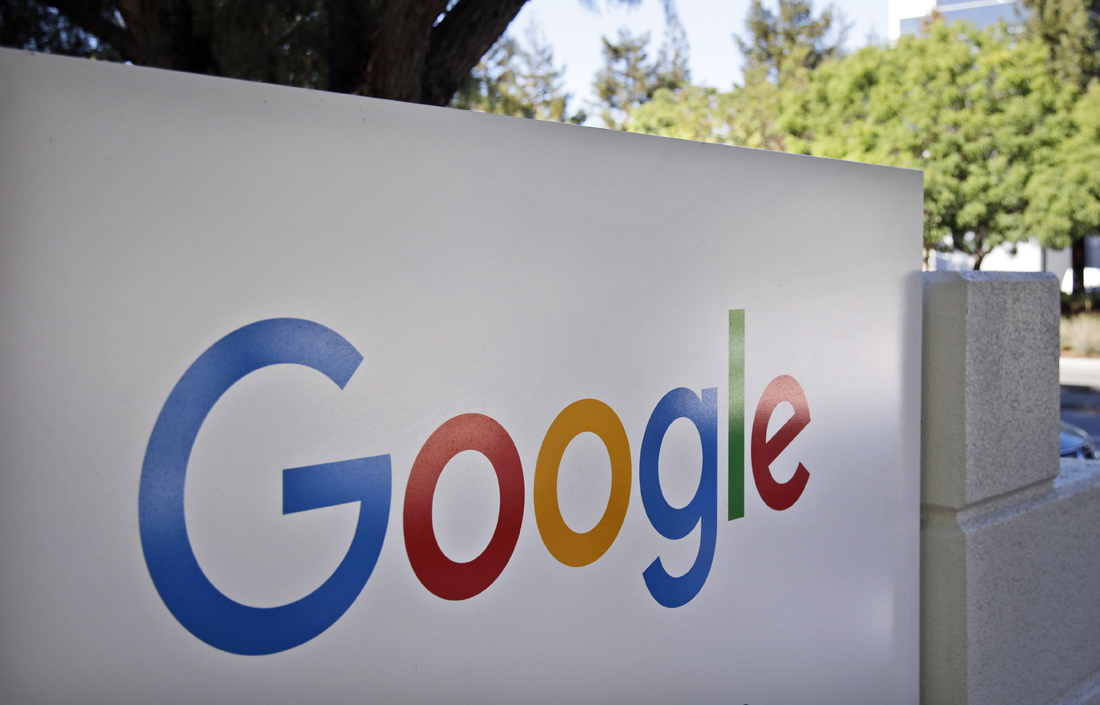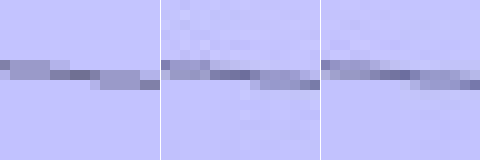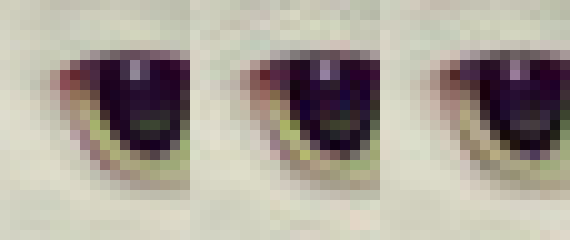
Google has developed a new open-source image compression algorithm that it says can reduce the size of JPEG images by 35 percent.
The algorithm, dubbed Guetzil (that’s Swiss German for cookie), is said to create smaller file sizes without sacrificing much in the way of quality.
Robert Obryk and Jyrki Alakuijala, software engineers at Google Research Europe, highlight in a recent blog post that the algorithm tries to overcome the difference between the psychovisual modeling of JPEG's format and Guetzli’s psychovisual model which approximates color perception and visual masking in a more thorough and detailed way than what is achievable by simpler color transforms and the discrete cosine transform.

(Figure 1. 16x16 pixel synthetic example of a phone line hanging against a blue sky — traditionally a case where JPEG compression algorithms suffer from artifacts. Uncompressed original is on the left. Guetzli (on the right) shows less ringing artefacts than libjpeg (middle) and has a smaller file size.)
That technical jargon won’t mean much to the average reader which is why they’ve provided a couple of visual examples to show just how effective the algorithm is.
The benefit of using Guetzil, aside from the reduction in image size and barely-noticeable changes in image quality, is that the files it turns out remain compatible with existing browsers, image processing programs and the JPEG standard itself.

(Figure 2. 20x24 pixel zoomed areas from a picture of a cat’s eye. Uncompressed original on the left. Guetzli (on the right) shows less ringing artefacts than libjpeg (middle) without requiring a larger file size.)
The one major shortcoming with Guetzil, however, is that the algorithm takes significantly longer to create compressed images compared to currently available methods. That may seem like a deal-breaker but because of how well it performs in the quality department, Google feels the slower compression time is a worthy trade-off.
Guetzil is available for anyone to download and try right now from GitHub.
Lead image courtesy Marcio Jose Sanchez, AP
https://www.techspot.com/news/68565-google-new-open-source-image-compression-algorithm-reduces.html